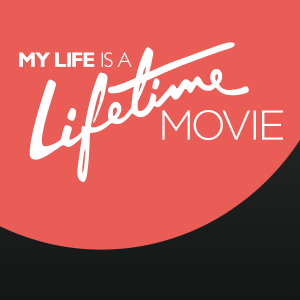My Life: The Movie
One element that seemed pervasive in both Lolita and Chapter 10 of the Peiss book was the influence of movies on adolescents. It is undeniable that the media can have major effects on teenage behavior (whether that influence is positive or negative is probably an argument for another day). Dolores is one of countless teenagers who are influenced by what they see on the big screen. The titular character seemed to take a keen interest in films, as she had Humbert take her to countless pictures and even he noted she picked up kissing tips from what she had seen in movies.

Is it really?
While there were limitations as to what could be shown on the big screen, a lot of the regulations were subjective. For instance, many sexual elements of films should be avoided, unless it is “essential to the plot” (Peiss, 344). This leaves moviemakers with a lot of wiggle room and teens with a lot of new ideas about sex and sexuality.
As I mentioned in my last Lolita post, I was very curious as to what was going on in Dolores’ head during her affair with Humbert. Movies tend to glamorize love as the main factor that contributes to a person’s “happily ever after.” I don’t think Dolores is immune to that influence and that might have become a major part of why she continued to stay with Humbert (and eventually ends up pursuing romances with Quilty and Schiller). She, like many other teens, is invested in what is coined in adolescent psychology as “the personal fable.” This is the belief that everyone is focused on your story and play background characters in the greater drama of your life. In other words, your life is a movie and everyone is watching.
Perhaps Dolores attempts to shape her life into the great romance that she is so accustomed to seeing in the pictures. Coming from a rather broken home (no father, difficult relationship with mother), she may have seen Humbert as a way to bring happiness (which, in the movie mind is linked to romance) into her life. But, as is hinted throughout the novel, Lola soon discovers that life is not like it is in the movies, and that Humbert is not the knight in shining armor to her princess in distress. Do you believe that Dolores/Lolita tries to shape her life into a glamorized film, or do you think her motivations lay elsewhere? Is she in control of her actions or is she manipulated completely by her environment (be it these films, her background or Humbert)?

April 9th, 2013 at 12:51 pm
It might be plausible to say that Dolores was in control at first in her relationship with Humbert. In her mother’s house, she was safe in the knowledge that if she leaked a word to her mother about Humbert’s improper conduct, Charlotte would act. This would not stem from pure motives to protect her daughter, rather from jealousy. Yet Charlotte would ultimately curb Humbert’s actions, so Lolita could enforce her boundaries. The relationship hits a second phase after Charlotte’s death; at this point, Humbert assumes full control of Dolores both physically and in terms of their sexual relationship. When he tells Dolores of her mother’s death, Dolores loses her protector and her sense of stability, as she is spirited away and left to be entirely dependent on Humbert. She does resort to manipulation to control what she can, such as by lying about her piano lessons, but her role in the relationship is ultimately entirely in Humbert’s hands.